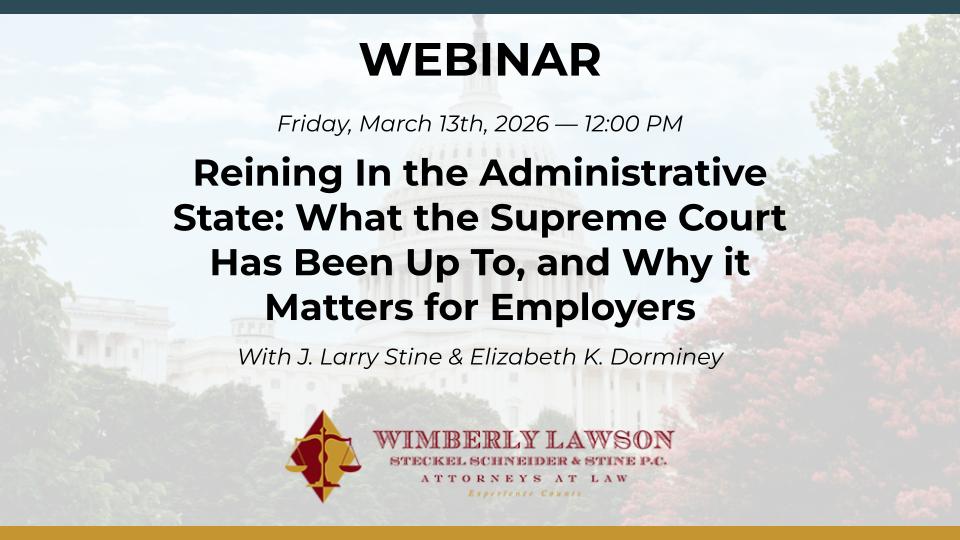Let's Talk About Paid Leave--Federal and State
Yesterday, the Senate passed, and the President signed into law, a virus relief package. Of particular interest to employers is the provision requiring with less than 500 employees to provide paid sick leave to employees affected by the virus. These employers must provide 2 weeks of fully paid sick leave for each employee's own quarantine, treatment, diagnosis or preventive care. Full time employees would be paid for 80 hours and part-time employees would be paid based upon their typical hours in a 2-week period. If leave is taken to care for a family member, pay is 2/3rd of the employee’s regular rate of pay.
Paid sick leave under this provision is made available in addition to any existing paid sick leave policies of the employer, and use of paid sick time shall be available for immediate use by the employee regardless of how long the employee has been employed by an employer. An employer may not require that employee to use other paid leave provided by the employer for use during this paid sick time. The definition of "child" is expanded to include that of a "domestic partner," which itself is broadly defined. The effective date of these paid sick leave provisions is not later than fifteen (15) days after the date of enactment, and the requirement shall expire on December 31, 2020.
Small businesses take note: the U.S. Department of Labor has authority to issue regulations for good cause that will exempt small business with fewer than 50 employees if imposing the new requirements would "jeopardize the viability of the business as a going concern."
It is also important for employers to monitor the state laws in the jurisdictions where they do business.
New York, for example, just passed a law that will expand paid sick leave to all public and private sector workers forced into precautionary or mandatory quarantine due to the coronavirus. It would not be surprising if other states followed with their emergency legislation.
There are currently six states with paid family leave, plus Washington D.C. The following have state paid leave laws:
- California
- Connecticut
- D.C.
- Massachusetts
- New Jersey
- New York
- Oregon
- Rhode Island
Businesses with operations in those jurisdictions should review the requirements for paid leave to determine if they are applicable.

Kathleen J. Jennings is a former principal in the Atlanta office of Wimberly, Lawson, Steckel, Schneider, & Stine, P.C. She defends employers in employment matters, such as sexual harassment, discrimination, Wage and Hour, OSHA, restrictive covenants, and other employment litigation and provides training and counseling to employers in employment matters.
Related Content
Get Email Updates
Recent Content

Reining In the Administrative State: What the Supreme Court Has Been Up To, and Why it Matters for Employers

TPS Update (as of 2/6/2026)

Job Interviews Can Be a Good Selection Device

Suggestions on How to Diffuse a Tense Situation

Employers Blame Unions for Recent Shutdowns

